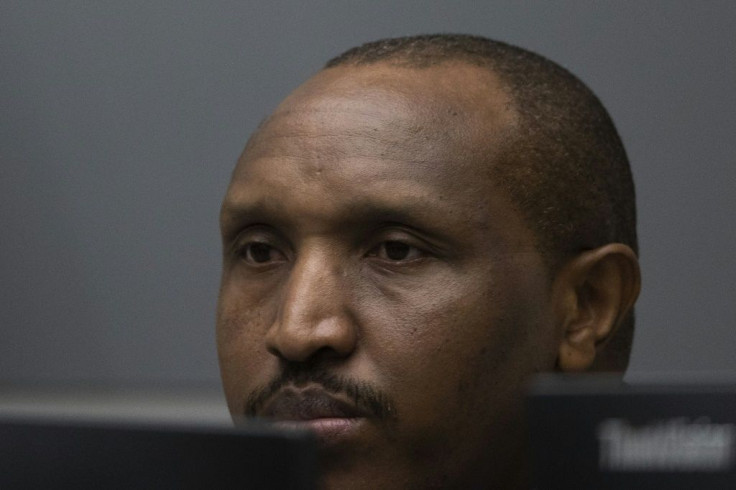ICC Rules On Appeal By Congolese 'Terminator' Warlord
The International Criminal Court will decide Tuesday on an appeal by a Congolese warlord dubbed the "Terminator", who received the tribunal's longest-ever war crimes sentence.
Rebel leader Bosco Ntaganda was convicted by the Hague-based ICC in 2019 over a reign of terror in the Democratic Republic of Congo in the early 2000s, and jailed for 30 years.
The Rwandan-born 47-year-old was found guilty of 18 counts of war crimes and crimes against humanity, including murder, sexual slavery, rape and using child soldiers.
Ntaganda was the first person to be convicted of sexual slavery by the court. Many of the other charges related to massacres of villagers in the mineral rich Ituri region of the DRC.
ICC appeals judges will hand down their decision on his appeal against his conviction and sentence at 1300 GMT.
The court earlier this month awarded Ntaganda's victims $30 million (25 million euros) in reparations, provided he was convicted on appeal.
The court asked the court's trust fund for victims to arrange for the reparations to be made, or to find further funds as necessary, as Ntaganda was unable to pay.
Ntaganda's lawyers said when they announced his intention to appeal that the Rwandan-born 46-year-old was "at peace with himself" and that he "remains fine and strong".
They said the ICC's decision to convict him "contains many errors of law and fact".
Prosecutors portrayed him as the ruthless leader of ethnic Tutsi revolts amid the civil wars that wracked the DRC after the 1994 genocide of Tutsis in neighbouring Rwanda.

Judges said Ntaganda was a "key leader" of the Union of Congolese Patriots rebel group and its military wing, the Patriotic Forces for the Liberation of Congo (FPLC).
They operated in the volatile Ituri province, on the eastern border of DR Congo, in 2002 and 2003.
The FPLC killed at least 800 people as it fought rival militias for control of valuable minerals. Tens of thousands of people have been killed in the region since violence erupted there in 1999.
Judges found that in one attack in a banana field that was directed by Ntaganda, soldiers used sticks, knives and machetes to kill at least 49 captives, including children and babies.
Formerly a Congolese army general, Ntaganda became a founding member of the M23 rebel group, which was eventually defeated by Congolese government forces in 2013.
Later that year he became the first-ever suspect to surrender to the ICC, when he walked into the US embassy in the Rwandan capital Kigali.
Ntaganda -- known for his pencil moustache and a penchant for fine dining -- said during his trial that he was "soldier not a criminal".
He insisted that the "Terminator" nickname, referring to the films starring Arnold Schwarzenegger as a relentless killer robot, did not apply to him.
His defence team said the trial judgment against him "reflects neither the truth nor the reality".
While his conviction was seen as a boost for the ICC after several high-profile suspects walked free, the court has also been criticised for mainly trying African suspects.
He is one of only five people convicted by the court since it was set up in 2002 to try the world's most serious crimes.
In another major decision on Wednesday, the ICC will rule on an appeal by the prosecution against the acquittal of former Ivory Coast president Laurent Gbagbo.
© Copyright AFP {{Year}}. All rights reserved.




















